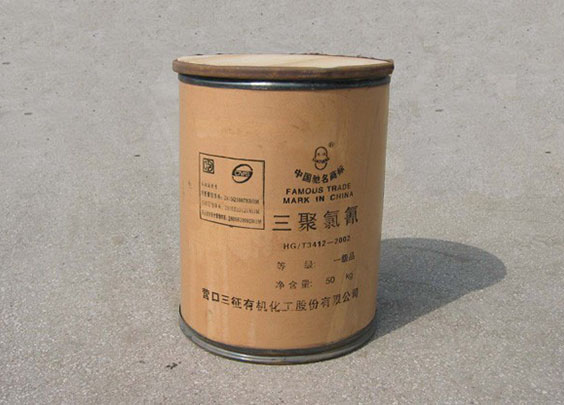YINGKOU SANZHENG ORGANIC CHEMICAL CO., LTD. LIAONING CHINA
Address: No. 51, Xinxinli, Daqing Road, Zhanqian District, Yingkou City, Liaoning, China电话:0417-3638868
Fax: 0417-3638868
Email: ykszgs@sohu.com
Zip code: 115001
URL::www.szchem.net
Bacillus subtilis (Bs)-microbial fungicide, cyanuric chloride can stably colonize soil and plant surfaces, produce antibiotics, secrete hormones that stimulate plant growth, and can induce disease resistance in the host, which is an ideal The microbial fungicide, cyanuric chloride has broad application prospects. For example: Alabama State in the United States treated a variety of crop seeds with Bs, the average yield increased by 9%, and the root disease was significantly reduced; Japan used Bs and its secretion to control tomato wilt with good control effects; Peking University and Henan Academy of Agricultural Sciences in China It is reported that Bs has a good field control effect on wheat head blight, watermelon fusarium wilt, tobacco bacterial wilt, cotton fusarium wilt and other diseases, and has a significant yield increase effect. The Plant Protection Institute of Jiangsu Academy of Agricultural Sciences and the International Rice Research Institute have long-term cooperation research. The pesticide manufacturer has developed a biological fungicide Bs-916. Large-scale demonstration and extension experiments have shown that Bs-916 has a 75-85% control effect on sheath blight. , The control effect of rice smut disease is 63.8-85.7%. Experts at home and abroad highly appraise the research results, and believe that the use of Bs fungicide to control rice sheath blight is the most advanced research in biological control of leaf diseases, and it has the conditions for turning to commercial production. Insect viruses [nuclear polyhedrosis virus (NPV), granulovirus (GV)]-microbial insecticides are pathogenic natural enemies that inhibit the population of pests. NPV and GV use lepidopteran pests as specific hosts, which are highly safe, can be stored for a long time, are easy to produce, and have similar application methods to chemical pesticides. Therefore, as excellent biological control factors, they have received extensive attention from all over the world. And research.
Japan, the United States, Canada, the United Kingdom, etc. are working hard to study the ways and mechanisms of NPV to speed up, increase efficiency and expand the insecticidal spectrum, and synthetic ammonia manufacturers have made breakthroughs. In particular, Japanese researchers Fukuhara and Mihashi and Sato respectively found that Mythimna separata EPV (Pseudaletia separata EPV) had a strong synergistic effect on PuNPV and AcNPV; Goto found a granulovirus of Xestia c-nigrum (Xestia c-nigrum). (XcGV) not only has 100-10000 times synergistic effect on XcNPV, HaNPV (Helicoverpa armigera NPV), SeNPV (Beet Armyworm NPV) and other NPVs, but at the same time it more than doubles the insecticidal speed of NPV and expands The insecticidal spectrum of NPV. GV's discovery of NPV's speed-up, efficiency-enhancing, and spectrum-expanding effects broke through the three major obstacles of NPV's application in crops to prevent and control major pests, making NPV for the first time showing the industrial development prospects of real alternatives to chemical insecticides to control pests. One of the earliest biological pesticide research institutions.
